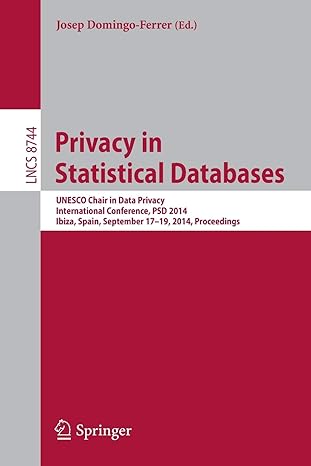Question
Generalized Model 5-4 (in the text book) to have two additional types of items (doodads and kontraptions), as well as widgets; initially, there are 60
Generalized Model 5-4 (in the text book) to have two additional types of items (doodads and kontraptions), as well as widgets; initially, there are 60 widgets, 50 doodads and 70 kontraptions. The customers arrive in the same pattern as before, but now each customer will have a demand for doodads and kontraptions, as well as for widgets. Widget demands are as before, doodad demands are POIS(1,9) and kontraptions demand are POIS(2,3); assume that the a customers demand for an item is independent of his or her demands for the other two items. There is still one inventory evaluator, who still arrives at the beginning of each day, but now has to look at all three inventories and order according to separate (s, S) policies for each of the three inventories, you may clone this inventory evaluator for this triple duty, using two tandem instances of the separate flowchart module. For widgets (s, S) = (20, 40) as before for doodads, (s, S) = (15, 35); and for kontraptions (s, S) = (25, 45). Delivery lags for widgets are UNIF (0.5, 1.0) as before; for doodads, it is UNIF(0.4,0.8) and for kontraptions, it is UNIF(0.8,1.7); note that for kontraptions, it is possible for a delivery lag to extend beyond the time of the next inventory evaluation, but make the order decision based on only the inventory on hand , rather than based on the inventory on hand plus on order (even though the latter might make more sense; see Exercise 5-25). Ordering costs (both setup and incremental), holding and shortage costs for doodads and kontraptions are the same for widgets. Run the simulation for the same length as model 5-4 (that is, it is ok to fudge the ending point to avoid useless inventory evaluation at time 120), and get the total daily cost, as well as separate holding and shortage costs for each type of items in inventory. Describe how you model this if you had hundreds or thousands of different kinds of items inventory instead of just three.
Step by Step Solution
There are 3 Steps involved in it
Step: 1

Get Instant Access to Expert-Tailored Solutions
See step-by-step solutions with expert insights and AI powered tools for academic success
Step: 2

Step: 3

Ace Your Homework with AI
Get the answers you need in no time with our AI-driven, step-by-step assistance
Get Started


